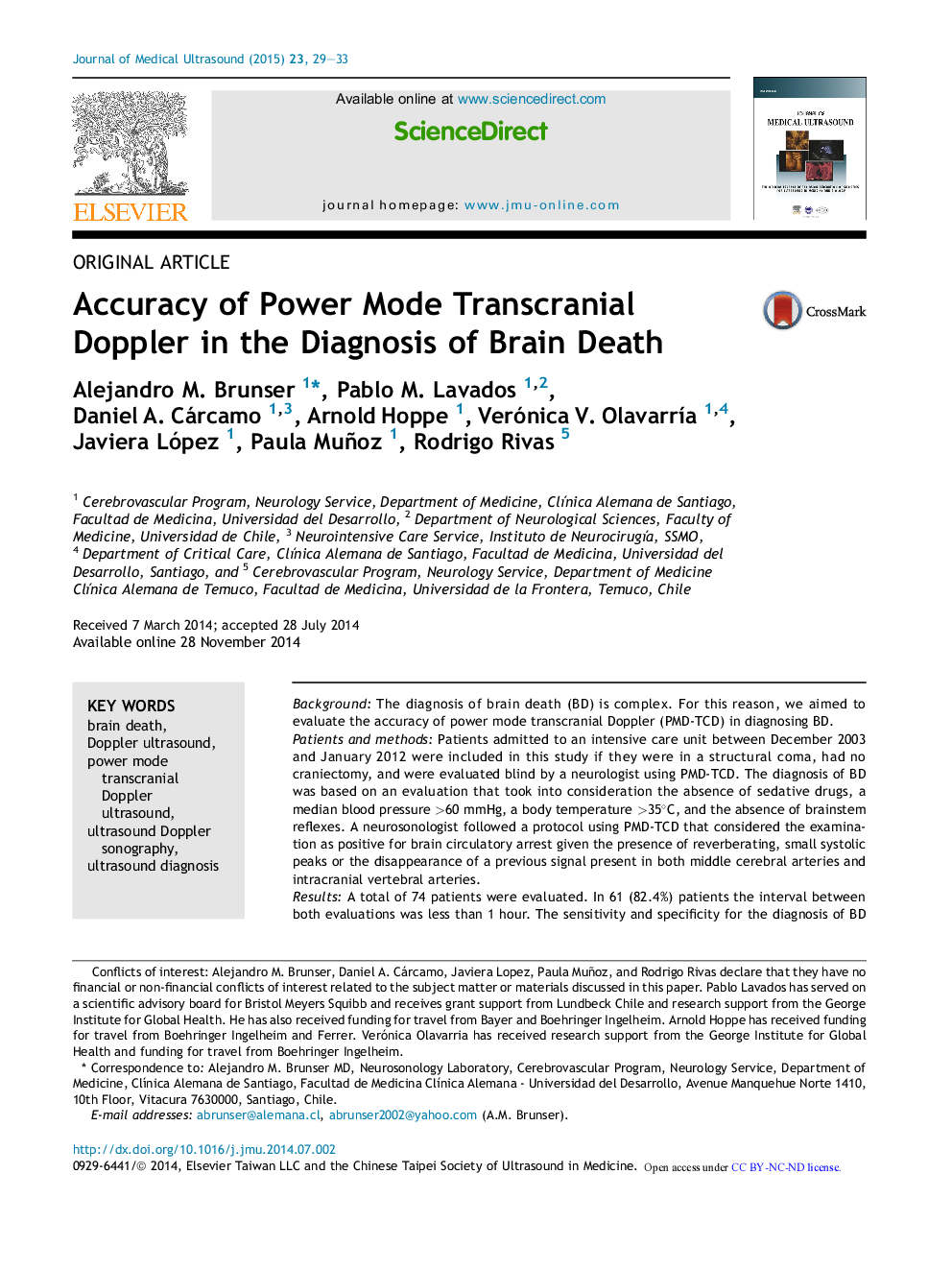| Article ID | Journal | Published Year | Pages | File Type |
|---|---|---|---|---|
| 4233035 | Journal of Medical Ultrasound | 2015 | 5 Pages |
BackgroundThe diagnosis of brain death (BD) is complex. For this reason, we aimed to evaluate the accuracy of power mode transcranial Doppler (PMD-TCD) in diagnosing BD.Patients and methodsPatients admitted to an intensive care unit between December 2003 and January 2012 were included in this study if they were in a structural coma, had no craniectomy, and were evaluated blind by a neurologist using PMD-TCD. The diagnosis of BD was based on an evaluation that took into consideration the absence of sedative drugs, a median blood pressure >60 mmHg, a body temperature >35°C, and the absence of brainstem reflexes. A neurosonologist followed a protocol using PMD-TCD that considered the examination as positive for brain circulatory arrest given the presence of reverberating, small systolic peaks or the disappearance of a previous signal present in both middle cerebral arteries and intracranial vertebral arteries.ResultsA total of 74 patients were evaluated. In 61 (82.4%) patients the interval between both evaluations was less than 1 hour. The sensitivity and specificity for the diagnosis of BD with PMD-TCD were 100% and 98%, respectively. The positive and negative likelihood ratios for BD were 45 and 0, respectively.ConclusionPMD-TCD is accurate for the diagnosis of BD.
